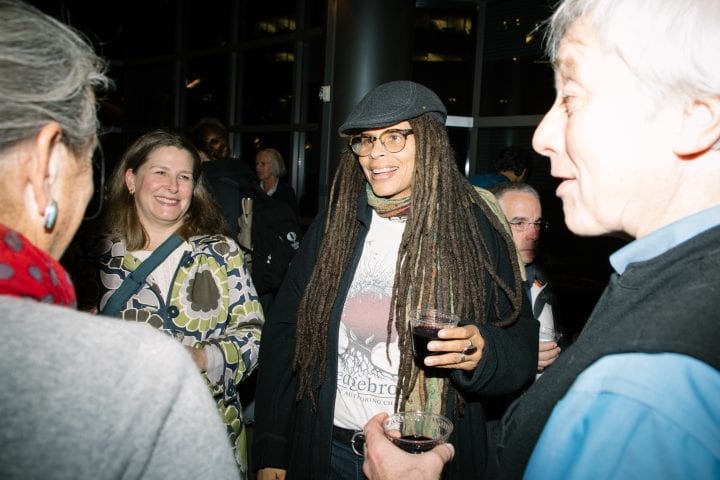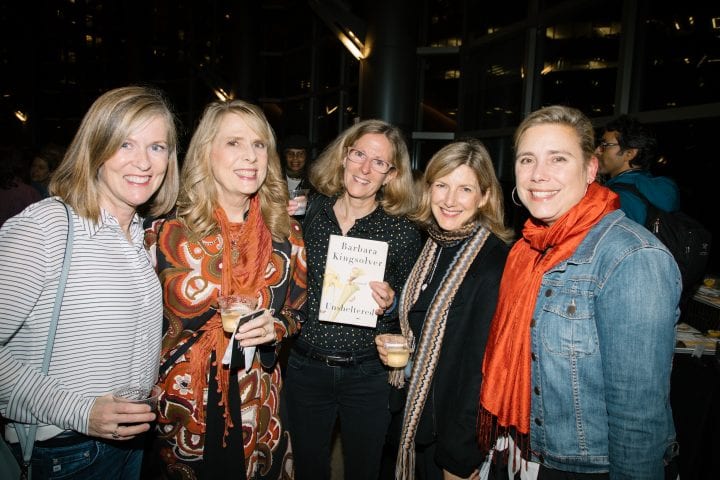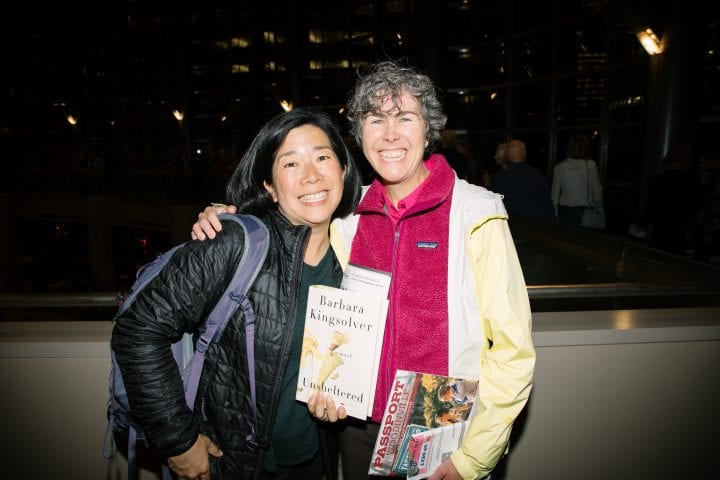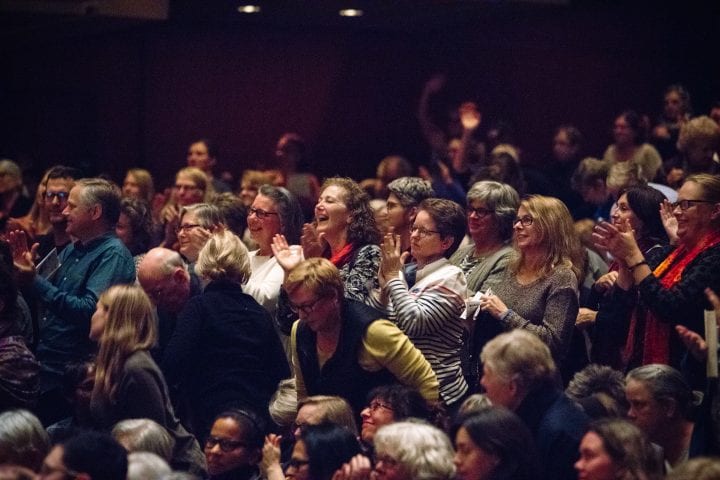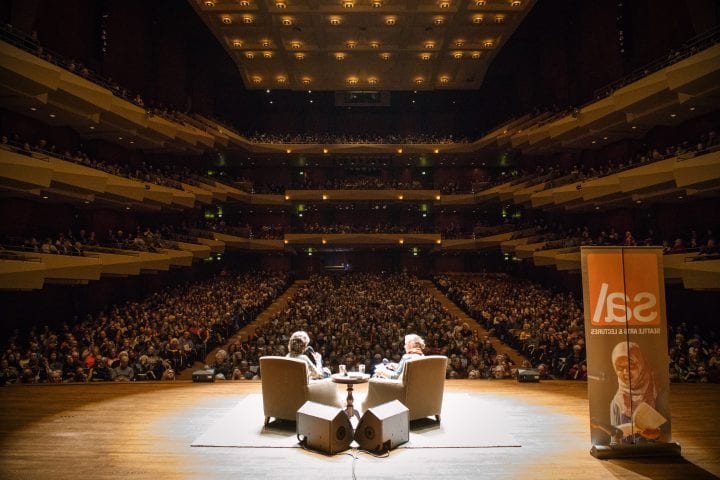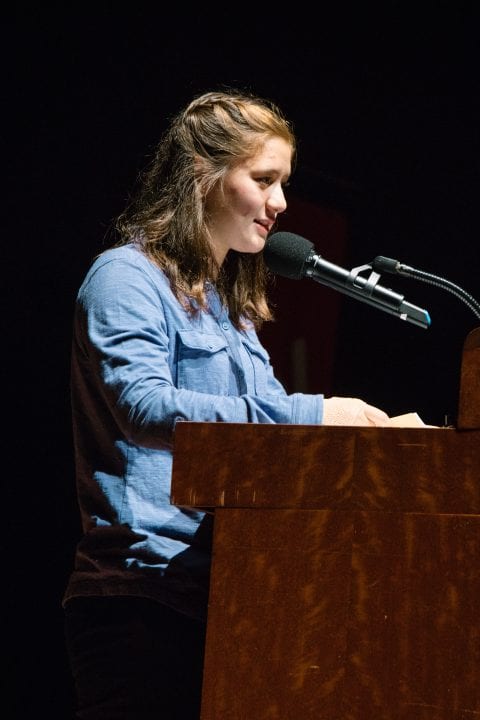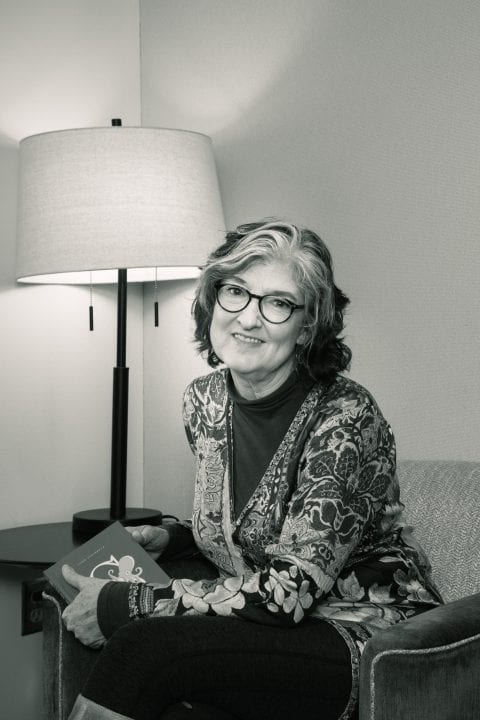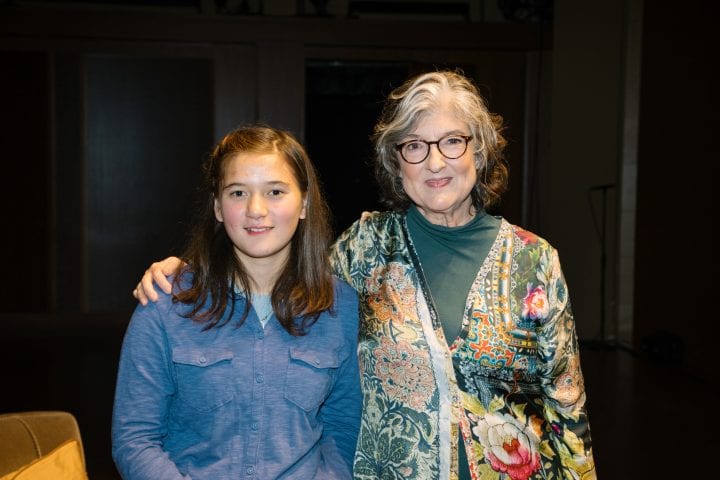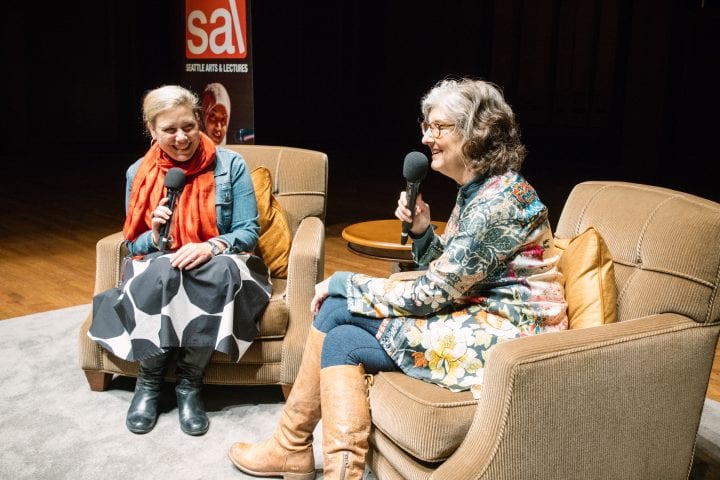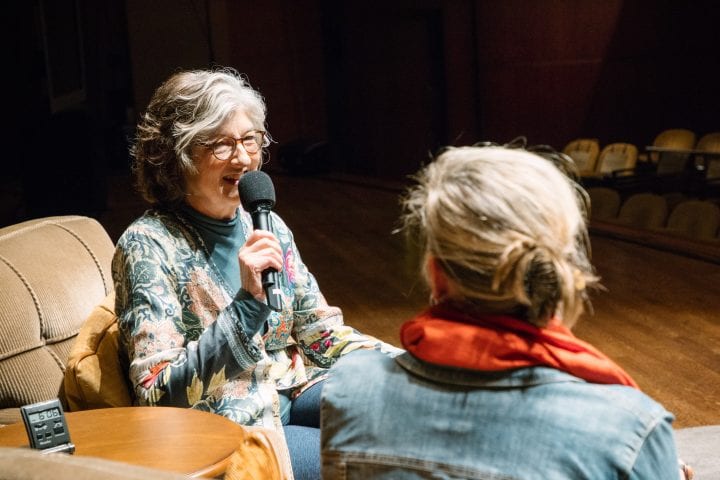
Barbara Kingsolver’s Promise of Openness
November 1, 2018
On Thursday, October 25, SAL crossed a top line off its Literary Arts bucket list—we were so lucky to have the singular Barbara Kingsolver on stage and in conversation. She spoke with Executive Director Ruth Dickey about everything that’s been on her mind lately, from the letters of Mary Treat, the female scientist and colleague of Charles Darwin erased by history, to the apologetic note she attached to her first novel.
For a glimpse inside the mind of one of American’s most talented and hopeful writers, read Ruth’s introduction for the evening, view a slideshow of photos from the event, and see some of the most astonishing quotes from Barbara below.
By Ruth Dickey, SAL Executive Director
I suspect every family has at least one author like this: an author whose books you wait for, and read at the same time, and pass back and forth, and talk about at holidays. Authors who become touch-points in your shared journey. For my family, Barbara Kingsolver is the author who most feels ours in this way, and so it is a literary dream come true for me to have her here with us in Seattle.
Given the fact that every book she has published since 1993 has been on the New York Times bestseller list, it’s clear that her books are like this for many of us, and for many of our families. Kingsolver is the author of 8 novels – from the Bean Trees to Poisonwood Bible to The Lacuna, Prodigal Summer, and Flight Behavior – a memoir (Animal, Vegetable, Miracle), and 5 other books of nonfiction, essays and poetry. She is also a musician, a trained scientist, a journalist and the recipient of numerous prizes from The National Humanities Medal to the Dayton Literary Peace Prize to the Orange Prize for Fiction.
I love her work because she brings us the richness and beauty of rural life, of nature, of love. And also because she unabashedly believes in making the world a more just and inclusive place, and her novels explore issues of social justice in all their richness and complexity without shying away from having a point of view.
Her new book, Unsheltered, toggles between a small New Jersey town in 1870 and 2016, exploring both societal and family struggles. This is a book about the shelters we create or try to create for ourselves – physical shelters, ways of thinking, ways of facing and not facing the world. The book draws out how to stand unsheltered is both to stand unprotected and to stand open. Kingsolver’s great gift – in this new book and across her work – is to show us both the vulnerability and the promise of openness (to new ways of thinking and seeing the world) and the many dangers of refusing to see.
Unsheltered is a beautiful book about politics and economics and science and dogmatism and hope. And it is also a book about love and connection and family and meaning and grief. About Willa, one of the main characters, Kingsolver writes, “First thing in the morning, last thing at night, whenever a fight with Tig left her in pieces, it had been her mother who put Willa back together. When someone mattered like that, you didn’t lose her at death. You lost her as you kept living.”
At its root, Barbara Kingsolver’s fiction wrestles with the most complicated issues of our time and illuminates the things we lose and gain as we keep living – as the climate changes, as the world shifts, as people die, as relationships change, as things fall apart. Her stories reveal the things that matter, and the ways we feel them.
Read select quotes from our evening with Barbara and see photos below:
On writing second drafts: “It’s all about putting together sentences that glow with their own internal light . . . I have to go back and change these serviceable sentences into something that’s never been written before.”
On hope: “Hope is a thing that you do, a thing that you choose . . . the minute I give it up, I’m opting out.”
On sending her first book to a publisher: “I attached a note to it that said: ‘I’m sorry, I think this is a novel, I’m not sure, I’m sorry.’”
On reading poetry: “I read poetry every night. I try to make it the last thing I I read at night; it’s flossing the word-loving parts of my brain.”
On the first thing she does before writing: “As a novelist, especially when I want to bridge gulfs of misunderstanding, the first thing I have to do everyday at the writing desk is to put myself aside and go inside these characters so deeply that I feel what motivates them.”
On reading different genres: “Sometimes, you need the serviceable Toyota of non-fiction. Sometimes, you only need a wheelbarrow: a poem, something small enough to be contained in a few lines.”
On worrying about people liking her books: “I like to put a recipe in each novel so that if readers don’t get anything out of it, they at least have a recipe.”
On Charles Darwin’s expectations: “Poor Darwin! He’d thought: ‘People will want to know this! This is lovely—they’ll be delighted!’ But they were not delighted. Poor Darwin and his wife and his 11 children.”
